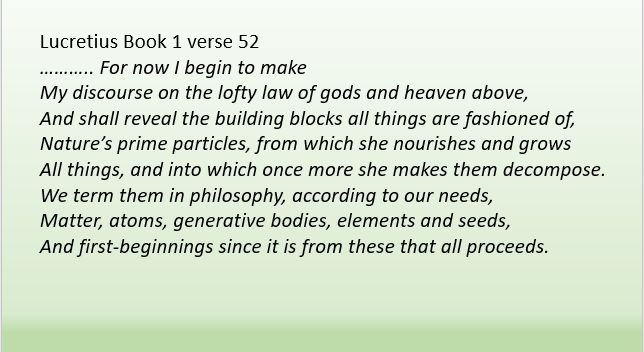

 |
Page
18
|
|
Lucretius Book 1 verse 52 I am using the Stallings translation in the Penguin Classics edition of 2007 So these early atomists had astounding ideas. Leucippus was the first
to speak of atoms. He stated that all things were eternal and simply changed
from one form to another. He also thought the universe was a vacuum –
an incredible idea. What experience would he have had of vacuums? He thought
worlds were produced by bodies falling into this vacuum and becoming entangled
with each other. Democritus almost 100 years later also maintained that
the vacuum and the atoms were how the universe began. Nothing was created
out of nothing and atoms produced all the combinations that exist in the
form of fire, water, air and earth. He also wrote an essay on cheerfulness.
Being cheerful was the greatest good of all. Epicurus in 300BC developed
these ideas. He did not believe in the gods – he was an agnostic
– and thought the development of matter did not require any form
of divine intervention. Furthermore he did not think we were unique but
that there were lots of earth-like bodies scattered about the universe.
His understanding was that the world would produce all sorts of odd combinations
of atoms creating weird kinds of creatures but that only those suited
to their environment would survive.
|